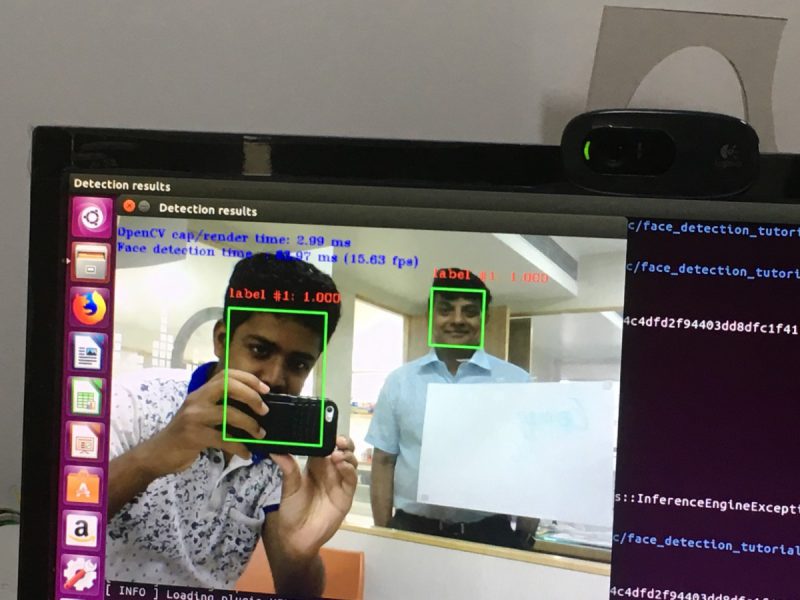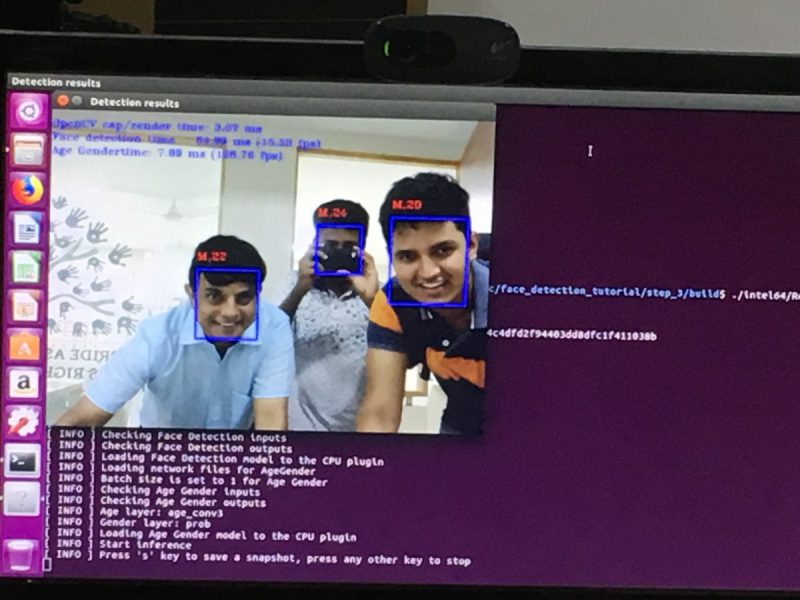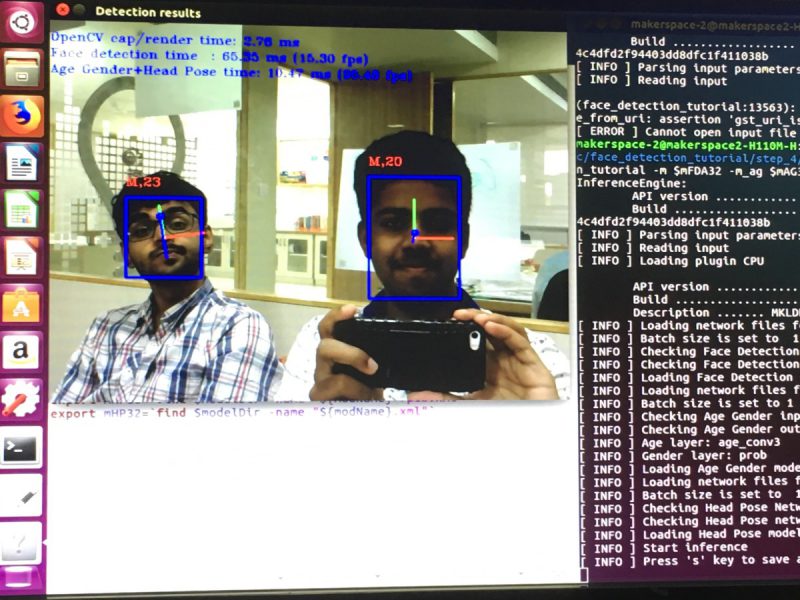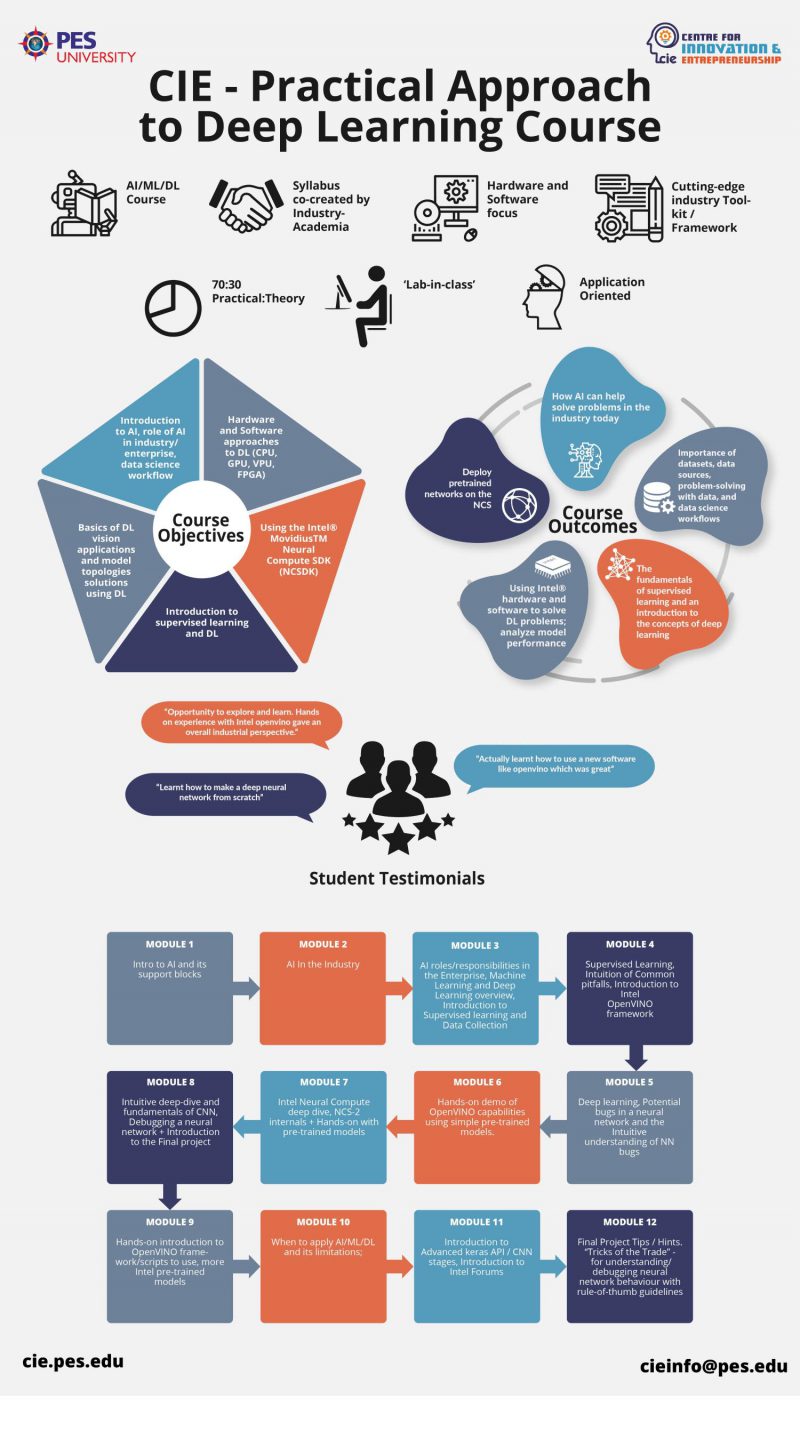Preparation work done at PES:
During Jan-May semester 2019, OpenVINO training was conducted by Intel engineers for PES students (participating in Intel ML Contest). CIE initiated a FDP session (Sep27, 2019) conducted by Intel and attended by 15 faculty from ECE, CS, EEE, and MCA. This was followed up with detailed discussions ECE Dept) resulting in inputs on course syllabus/content. Intel (I2R group) has also provided value inputs and feedback on course syllabus and content.
Based on work/experience and inputs from faculty, the course’s objective was crafted to create a broad understanding of DL with a hands-on approach using toolkit/framework to tackle real-world use-cases and applications. In future, this course can be extended to include other open source / free industry tools and also broaden the scope for covering deeper theoretical background.




